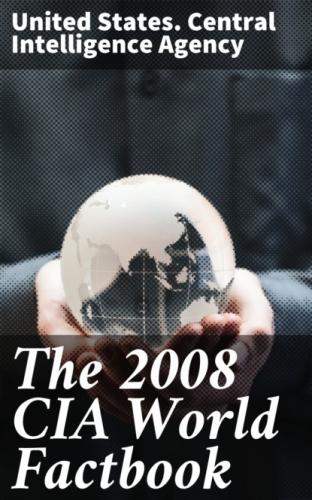International organization participation:
ACCT, ACP, AfDB, AU, BDEAC, CEMAC, FAO, FZ, G-77, IBRD, ICAO, ICCt,
ICRM, IDA, IFAD, IFC, IFRCS, ILO, IMF, IMO, Interpol, IOC, IOM, IPU,
ITSO, ITU, ITUC, MIGA, NAM, OIF, OPCW, UN, UNCTAD, UNESCO, UNIDO,
UNITAR, UNWTO, UPU, WCL, WCO, WFTU, WHO, WIPO, WMO, WTO
Diplomatic representation in the US:
chief of mission: Ambassador Serge MOMBOULI chancery: 4891 Colorado Avenue NW, Washington, DC 20011 telephone: [1] (202) 726–5500 FAX: [1] (202) 726–1860
Diplomatic representation from the US:
chief of mission: Ambassador Allan EASTHAM embassy: Boulevard de la Revolution, BDEAC Building, 4th Floor, Brazzaville; note - a new embassy is expected to open in 2009 mailing address: B.P. 1015, Brazzaville telephone: [242] 281–1481, [242] 281–3368; note - until the new embassy in Brazzaville becomes operational, some duties will still be handled in the US embassy in Kinshasha, Democratic Republic of the Congo
Flag description:
divided diagonally from the lower hoist side by a yellow band; the upper triangle (hoist side) is green and the lower triangle is red note: uses the popular pan-African colors of Ethiopia
Economy
Congo, Republic of the
Economy - overview:
The economy is a mixture of subsistence agriculture, an industrial sector based largely on oil, and support services, and a government characterized by budget problems and overstaffing. Oil has supplanted forestry as the mainstay of the economy, providing a major share of government revenues and exports. In the early 1980s, rapidly rising oil revenues enabled the government to finance large-scale development projects with GDP growth averaging 5% annually, one of the highest rates in Africa. The government has mortgaged a substantial portion of its oil earnings through oil-backed loans that have contributed to a growing debt burden and chronic revenue shortfalls. Economic reform efforts have been undertaken with the support of international organizations, notably the World Bank and the IMF. However, the reform program came to a halt in June 1997 when civil war erupted. Denis SASSOU-NGUESSO, who returned to power when the war ended in October 1997, publicly expressed interest in moving forward on economic reforms and privatization and in renewing cooperation with international financial institutions. Economic progress was badly hurt by slumping oil prices and the resumption of armed conflict in December 1998, which worsened the republic's budget deficit. The current administration presides over an uneasy internal peace and faces difficult economic challenges of stimulating recovery and reducing poverty. Recovery of oil prices has boosted the economy's GDP and near-term prospects. In March 2006, the World Bank and the International Monetary Fund (IMF) approved Heavily Indebted Poor Countries (HIPC) treatment for Congo.
GDP (purchasing power parity):
$12.86 billion (2007 est.)
GDP (official exchange rate):
$7.657 billion (2007 est.)
GDP - real growth rate:
−1.6% (2007 est.)
GDP - per capita (PPP):
$3,400 (2007 est.)
GDP - composition by sector:
agriculture: 5.6% industry: 57.1% services: 37.3% (2006 est.)
Labor force:
NA
Unemployment rate:
NA%
Population below poverty line:
NA%
Household income or consumption by percentage share:
lowest 10%: NA% highest 10%: NA%
Investment (gross fixed):
40.4% of GDP (2007 est.)
Budget:
revenues: $3.295 billion expenditures: $2.444 billion (2007 est.)
Fiscal year:
calendar year
Inflation rate (consumer prices):
2.7% (2007 est.)
Commercial bank prime lending rate:
15% (31 December 2007)
Stock of money:
$1.4 billion (31 December 2007)
Stock of quasi money:
$204.3 million (31 December 2007)
Stock of domestic credit:
NA
Agriculture - products:
cassava (tapioca), sugar, rice, corn, peanuts, vegetables, coffee, cocoa; forest products
Industries:
petroleum extraction, cement, lumber, brewing, sugar, palm oil, soap, flour, cigarettes
Industrial production growth rate:
−12% (2007 est.)
Electricity - production:
444 million kWh (2006 est.)
Electricity - consumption:
564 million kWh (2006 est.)
Electricity - exports:
0 kWh (2007 est.)
Electricity - imports:
411 million kWh (2006 est.)
Electricity - production by source:
fossil fuel: 0.3% hydro: 99.7% nuclear: 0% other: 0% (2001)
Oil - production:
261,000 bbl/day
Oil - consumption:
7,677 bbl/day (2006 est.)
Oil - exports:
230,200 bbl/day (2005 est.)
Oil - imports:
1,702 bbl/day (2005)
Oil - proved reserves:
1.6 billion bbl (1 January 2008 est.)
Natural gas - production:
180 million cu m (2006 est.)
Natural gas - consumption:
180 million cu m (2006 est.)
Natural gas - exports:
0 cu m (2007 est.)
Natural gas - imports:
0 cu m (2007 est.)
Natural gas - proved reserves:
90.61 billion cu m (1 January 2008 est.)
Current account balance:
-$1.491 billion (2007 est.)
Exports:
$5.8 billion f.o.b. (2007 est.)
Exports - commodities:
petroleum, lumber, plywood, sugar, cocoa, coffee, diamonds
Exports - partners:
US 41%, China 36.5%, Taiwan 3.6% (2007)
Imports:
$2.634 billion f.o.b. (2007 est.)
